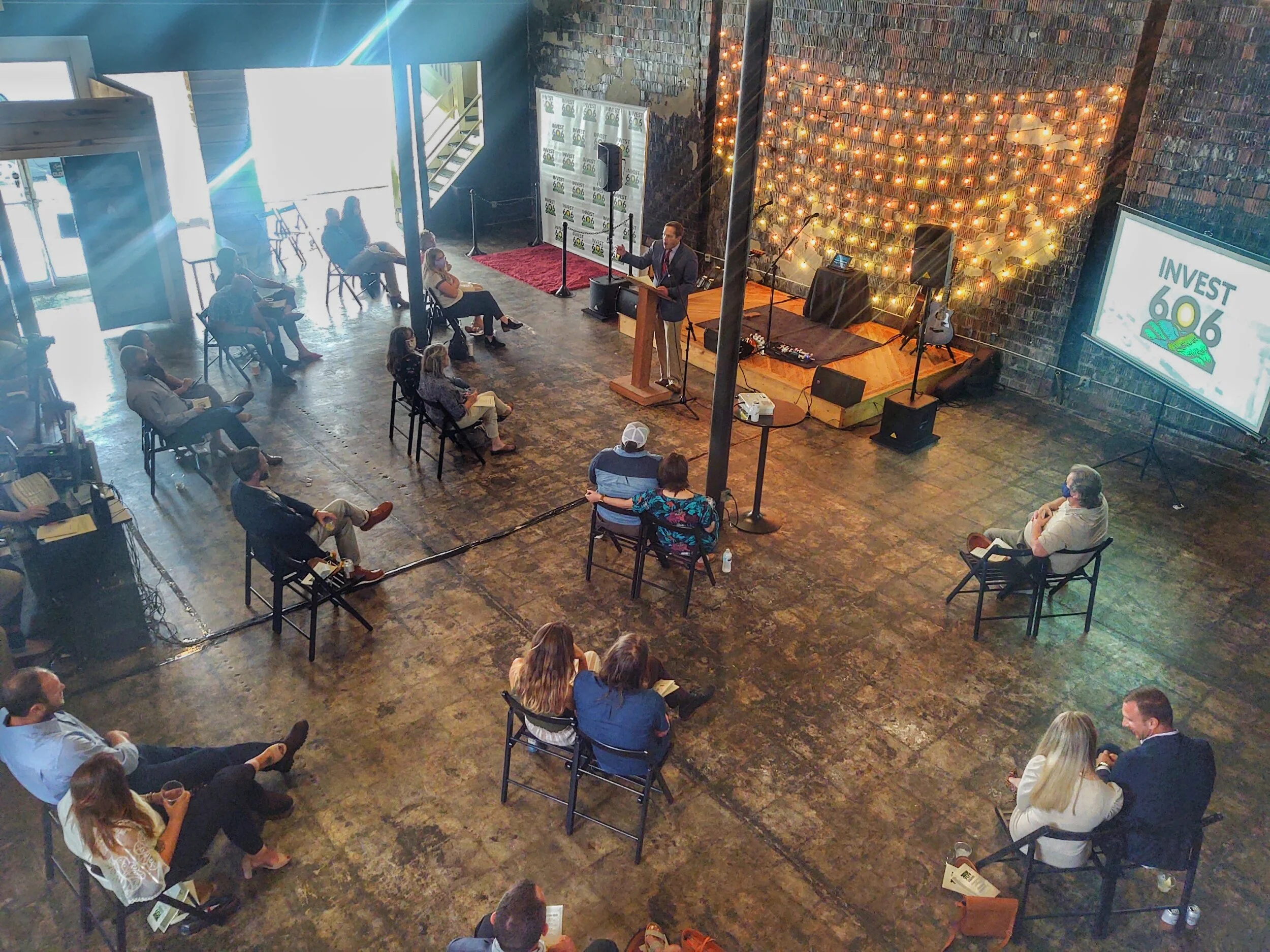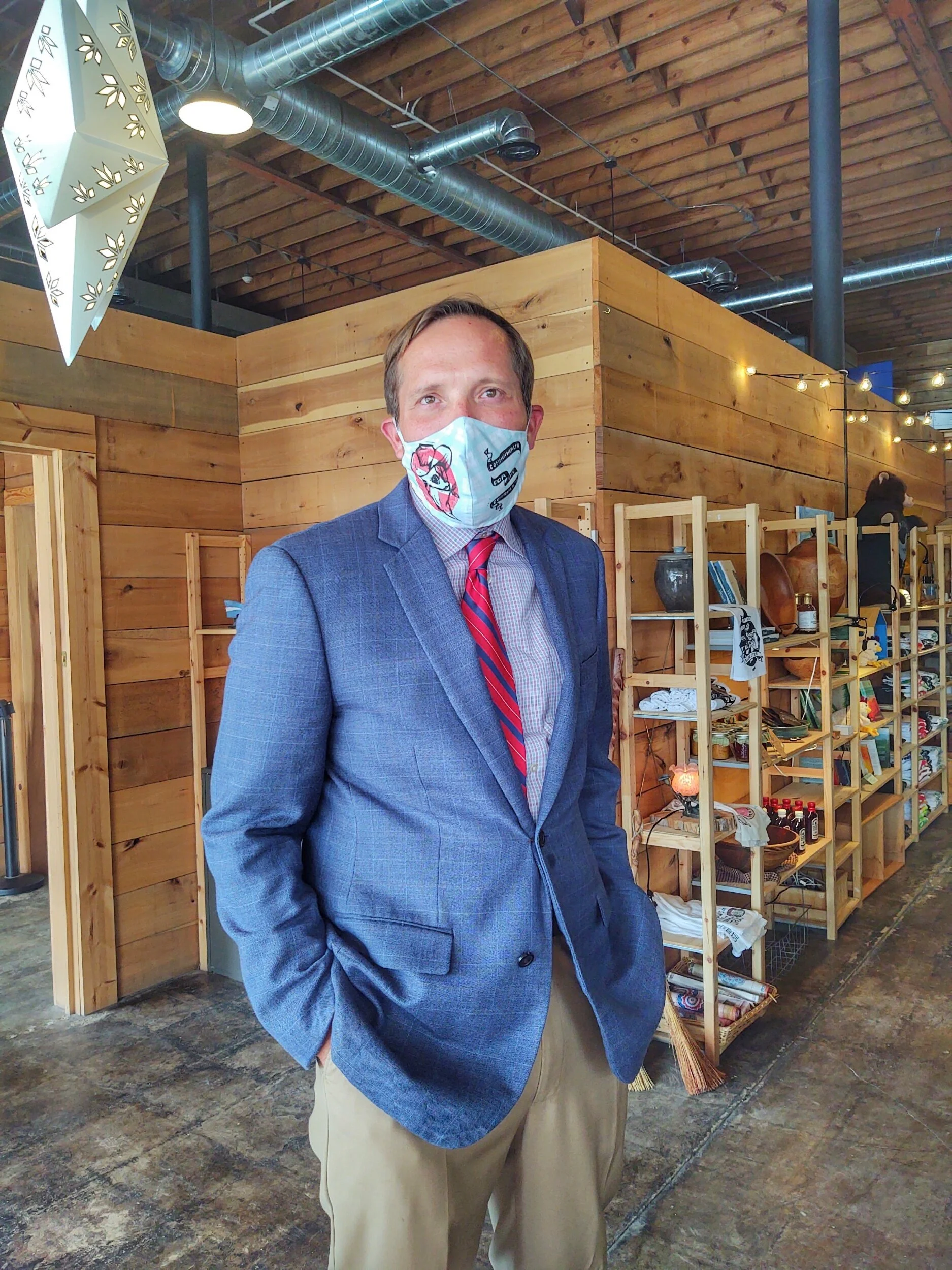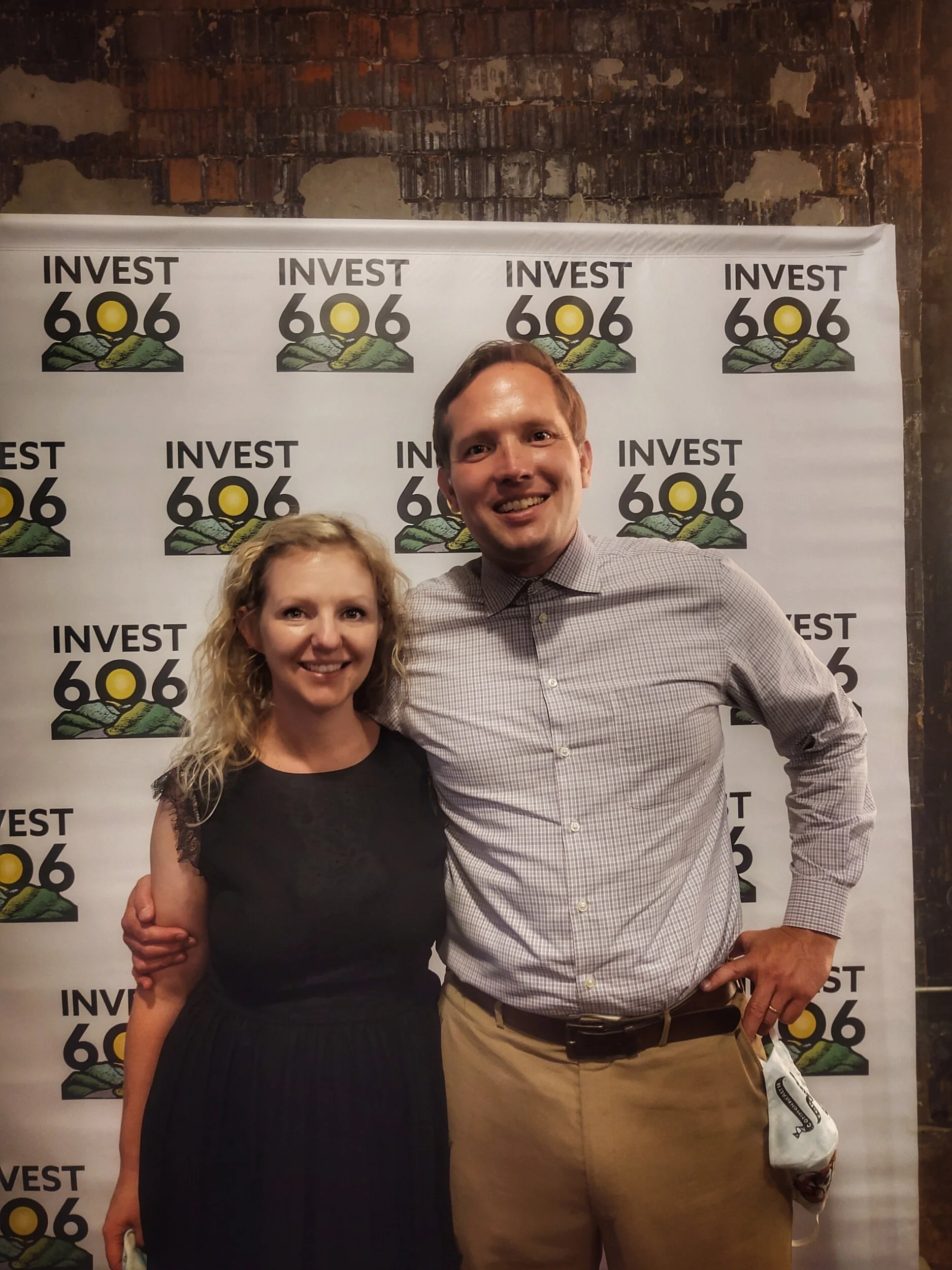Main streets have emptied. An unprecedented number of people are without jobs, facing grave uncertainty about where to find employment. Businesses struggle to stay open with fewer and fewer customers. Here in the coalfields of Appalachia, this has been the reality of life long before the Coronavirus Pandemic hit and rocked our daily lives. Believe it or not, I am not here to share another sad story about the economic realities of our region. Instead, I want to share with you a story of resilience and hopefulness in telling you about the 2020 Cohort for Invest 606. I believe it provides us with ideas for how to support our local economies and supply chains, with lessons that may apply broadly in the days ahead.
Eastern Kentucky is an incredible place with unlimited opportunity. A rich mountain culture with world-class outdoor recreation and people with an unbeatable work-ethic, the 606 is one of America’s hidden gems. The Invest 606 Accelerator awards more than $50,000 in prizes to promising businesses in the 606 phone area code.
You can learn more about them at: https://www.invest606.org/
When you live in a place with a troubled economy, the balance between government support and the ingenuity of folks on the ground is a dynamic that you get to see play out over and again. The past several decades have seen the decimation of the coal industry, and whether you see that as progress or tragedy, the reality in the mountains of Kentucky has been waves of job losses and a high concentration of poverty. Government programs, Community Development Financial Institutions (CDFI’s), and non-profits have been working on this issue for generations now. But that does not make us the dying rural place of the collective American imagination. No, rural Appalachia is very much alive and vibrant and, on the whole, a lovely place to live and raise children. Certainly, there are difficulties, but there are also real and authentic connections, a sense of community, and a level of resilience that is at once heartbreaking and affirming.
What gives Appalachia that strength and resilience is the people. And yet, ironically, these are the folks who are consulted last when strategies are developed to rebuild the economy. The radical approach is to realize that there are already successful businesses on the ground in the region, and that the people behind them already have the wisdom and knowledge to grow more.
Empowering people on the ground, providing access to capital, putting them in the role of leader, and helping folks learn from and connect to each other is far different from hiring outside “experts,” but that is exactly the tact taken by Invest 606, an Accelerator and Pitch Competition that was started by my own Geoff Marietta. The inaugural cohort of 12 amazing local businesses just finalized their experience with a pitch contest and awards ceremony. Behind each of them are lessons in how we build a strong local economy, even in the face of big challenges.
Investing in Communities
Geoff Marietta envisioned Invest 606 for entrepreneurs in rural Appalachia
Having lived in both urban and rural areas, it is easy to see the contrast in strategy for economic growth. In many American cities, new and exciting sectors are specifically targeted for investment. There are major incentives to recruit talented folks and to help them launch their big idea, whether it is in biomedical engineering or providing electronic scooters that can be rented out by the hour. Certainly, not all of these ideas will flourish, but the idea is to invest in a variety of them, provide the necessary conditions for success, and then see what emerges and how it enriches the community. Pitch contests and accelerators provide opportunities for entrepreneurs to sharpen their ideas, learn from each other, and connect with investors. They give fledgling companies attention and credibility, and sometimes—if we are to be honest—a prize that makes it easier to keep up with the grind that is part of starting something new and building it from scratch.
But what about rural America? Where we live, in Central Appalachia, may seem like an unlikely spot for innovation and technological breakthrough, but that is only if you have a narrow definition of innovation or the problems that are worthy of addressing. Finding stable and dignified jobs for folks living in recovery from addiction, providing access to fitness classes and expertise without entering a physical gym, employing adults with disabilities, and coaching applicants through online interviews are just a small sampling of the problems that businesses within Invest 606 faced. What the Coronavirus pandemic has taught us is that all problems are local, and we need the capacity to address them in our own communities.
Adapting the accelerator model to a rural community was a major challenge faced by Invest 606. It was this vision that was supported by the James Graham Brown Foundation, the Foundation for Appalachian Kentucky, and the University of the Cumberlands. In its first year, the organization brought the business owners together for a series of events that allowed them to visit and learn from each other, along with development that could be met in a variety of targeted, individualized ways. Networking is an urban buzzword, but the realities of it are difficult in the geographic expanse of a region like Appalachia. Some of the business owners would have to drive an average of two hours over mountainous terrain to visit with each other, or see the progress made in similar communities. Moreover, business owners accumulated “points” by getting support in whatever way made sense to them, whether it was through a mentor or an online class that allowed them to develop new skills. “Demo Day” allowed them to practice their pitch and learn from each other, with a final Pitch Contest that was led by a distinguished panel of judges. The contest allowed businesses access to money—a cash prize that could be invested to deepen their innovation and impact.
You can learn a little bit about each one of the entrepreneurs in the 2020 cohort and their businesses below:
A Pandemic Changes The Business Landscape
Invest 606 was well on its way for its first year when the pandemic hit. When the Coronavirus swept through, these small businesses were faced with incredibly tough choices. Some pivoted and put their services online or for pickup or delivery, while others closed their doors. But nearly everyone saw revenues dwindle as folks quarantined, and suddenly found themselves tasked with the expense of tracking down new supplies and packaging and protection for themselves and their staff. A rollercoaster loomed, with the earnest question of how to survive all the uncertainty ahead, particularly with the scepter of more shutdowns. Emergency loans from the government were often smaller than expected and took months to receive. Rules around reimbursements and programs were confusing, and sometimes prohibitive.
As these businesses were adjusting, Invest 606 was able to also adapt in real-time. After all, what drove Geoff to start it was his own experience growing up in a rural community and starting businesses in Eastern Kentucky. We were facing the same dilemmas, and therefore knew the same needs.
After checking in with all of the participants, Invest 606 took part of the prize money for the final pitch contest and distributed the funds as emergency grants to each business. Invest 606 worked with the Community Economic Development Initiative of Kentucky, the Appalachian Impact Fund (AIF), and FAKY to help distribute emergency grants to the wider ecosystem of businesses in each of the Eastern Kentucky town. And, they partnered with AIF to provide the first zero interest loans given in the region. The members of the cohort were able to access up to $10,000 in an interest-free loan with a first payment that was deferred for a year. These cash infusions allowed businesses to keep their head above the turbulence.
These types of resources are typically impossible to come by in regions like Appalachia. If you remember, we were unable to get a commercial loan to purchase a vacant downtown building on Main Street in Corbin because, in 2017 it seemed impossible that a mixed-use venue could survive. Who can get money—and for what—is one of the great factors of inequality that face rural areas, and particularly in places like Appalachia.
Local band Kites played at the awards ceremony. The finalist gathered following strict social distancing and masking procedures. This was the first live concert Kites had played since Coronavirus closures.
And each of these businesses took the money and rose to the challenge in ways that not only kept their own enterprises alive, but also supported an entire ecosystem of individuals and businesses. One example is Sassy Trash, an upcycling boutique in Downtown Harlan that also sells the arts and good of over 20 local people. They used their closure as an opportunity to expand their business, renovating and opening an entire extra floor of products. Sprinkles of Hope, a bakery that employs adults with disabilities in Maysville, opened a second location in a local community college. Elevate Health and Fitness in London guided hundreds of women through online exercises every week, finding new platforms and new ways to connect.
Social Entrepreneurism
The Awards Ceremony for the 2020 cohort was recently held in Corbin. The event was a metaphor for adaptation to the coronavirus. Rather than having a live pitch contest, each business pre-recorded their pitches for judges to watch remotely. The entrepreneurs assembled wearing masks and keeping socially distant. They watched videos from the judges, as over 1,000 people followed along on Facebook Live to hear the final winners.
Of course, all of these businesses are incredible, and the judges emphasized again and again how difficult it was for them to narrow their choices. In fact, they ended up awarding 2 third-place prizes for a total of 4 winners.
What each of the winners emphasized is how what we might think of as small-time businesses in small towns are actually catalyst for change and represent an incredible opportunity for further growth:
· Third Prize: Fact of Nature
Fact of Nature is a music recording studio in Mayking that recognizes there is a high cost of entry to participate in the arts. Kenny Miles, the owner, has produced a top album for Rolling Stone Germany, and now brings the equipment and expertise at a sliding cost to musicians in the region. The judges recognized Fact of Nature as having the potential to turn this small town into the next Muscle Shoals.
· Third Prize: Woodstock Lavender Farm
The Woodstock Lavender Farm is led by a mother-daughter duo who have found ways to keep the family farm going through generations. But what let them win the contest was not their unique products, but their partnership with a local community college to help build a piece of agricultural technology that is currently inaccessible to small farms: a lavender debudding machine. This piece of technology has the potential to improve production for small-scale lavender and herb farmers across the country.
· Second Prize: Moonlight Meat Processing
Anne Bays is a woman butcher who kept producing meat when large-scale processing plants closed due to Covid, literally keeping people in the region fed as grocery stores emptied of products. More than that, Anne has created opportunities for young adults to learn the art of butchering in a way that creates careers. In a time when local food production is critical, she is keeping the skills alive that will allows us access to broader food choices.
· Frist Prize: Class Guard Ready Shield
Chris McNamee is a school administrator who has taken on the challenge of protecting students from gun violence in schools. What makes his approach so important in today’s climate is that he has found a way to retrofit existing doors in classrooms, rather than replacing them entirely. In the future of limited budgets, this approach makes safety affordable, and is far likely to scale. Perhaps this is one of the most compelling examples of someone living the realities of a problem finding simple and affordable solutions to some of our most vexing challenges.
It is time that we recognize these places for what they truly represent—a pathway to stronger local economies and career-worthy jobs. We have long invested in the college graduate who has a shiny, big idea. Now is the time for us to value the businesses on the ground and give them the support they deserve. Invest 606 is just one model that puts power into the hands of local people working hard to create the future we want.
Sky and Geoff Marietta are passionate about rebuilding Main Street businesses in Appalachian Kentucky. Look for some of our blog posts below, or find out more about our start here.































